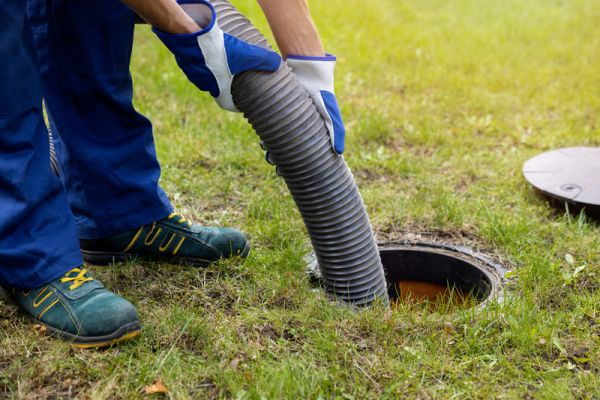In this article
5 Most Common Septic Tank Problems & How to Fix Them
Septic tanks play a vital role in keeping homes and businesses clean and healthy all year long, but what happens when things start to take a turn for the worse? In this blog, we’ll unpick some of the most common septic tank problems with solutions on how to fix them.
Key Warning Signs That You Shouldn’t Ignore
When it comes to the health and longevity of your septic tank, here are the key warning signs to keep your eye out for.
- Bad odours
- Pooling water
- Slow drains and gurgling noises
- Sewage Back up
Most Common Types of Septic Tank Problems?
1. Ground Movement
Problem: If the ground that surrounds your septic tank moves even the slightest, this increases the amount of pressure placed on your tank and can lead to several issues, some of which can be fatal. This increased pressure could cause the walls to fracture and crack. Whilst at best this could mean it will need emptying more often, at worst it could affect the tank's ability to separate waste and the whole system would need replacing.
Solution: Ground movement is typically the result of natural geological processes, for example, heavy rainfall eroding the surrounding soil, strong winds and even earthquakes. Whilst there is no way to stop the ground surrounding your septic tank from moving, there are some things you can do to mitigate the effects. Regular inspections can help you catch these issues early. If, however, you suspect ground movement has affected your septic tank, then get in touch with the professionals. They have the knowledge and equipment to assess any damage and schedule necessary septic tank repairs to realign or fix your system.
2. Lack of Septic Tank Maintenance
Problem: A common cause of septic tank problems is a lack of routine maintenance checks. If you neglect your septic tank system and fall short on regular inspections and servicing needs, this can lead to various issues, including slow drainage, bad smells and odours as well as a general decline in its efficiency.
Solution: The cost of septic tank repairs is often considerably higher than the maintenance costs, so scheduling these frequently is the best way to overcome this issue and save you money in the long run. You know what they say, ‘there’s no time like the present’, so we recommend completing one soon if you haven’t done so already. Here at Cotswold Drainage not only do we specialise in the maintenance of septic tank systems, but we also clean, repair and empty them. If you require any assistance in this area then please don’t hesitate to get in touch with a member of our friendly team.
3. A Collapsed Baffle & Damaged Dip Pipes
Problem: A collapsed baffle or damaged dip pipe can affect the separation process between the solid waste and the water. This is a serious issue which can lead to a system failure if left untreated. The common cause of damage to this area is general wear and tear that occurs as the septic tank system ages.
Solution: These are both serious issues and should be resolved as soon as possible. Usually, all it takes to restore your septic tank to its former glory is replacing the defective parts. With over 25 years of experience, the Cotswold Drainage team have seen it all and repaired it all. If your baffle or dip pipe needs repairing, we can sort you out with a replacement part and fit this at your earliest convenience.
4. Damage from Tree & Plant Roots
Problem: Tree and plant roots are naturally drawn to the moisture in septic tanks and drainage fields. Over time, these roots can infiltrate and damage your drainage system, causing long-lasting damage and letting all that nasty waste, that it's been holding, leak out.
Solution: To address this issue many professionals use root barriers or root removals to prevent tree roots from accessing septic tank systems. There are also several preventative measures that can be taken, like positioning your septic tank far away from trees and planting future greenery away from such areas.
5. The Septic Tank Hasn’t Been Installed Properly
Problem: An improperly installed septic tank can lead to several problems, from poor and insufficient drainage to environmental contamination.
Solution: If you are experiencing problems with your septic tank drainage system and suspect that it hasn’t been installed properly then you must contact the professionals. We know that doing it yourself might often feel like the preferred choice however in most cases this leads to more harm than good.
How To Fix Common Septic Tank Problems?
Whilst there are some problems with septic tank drainage systems that require professional attention, there are others that can be resolved with routine maintenance checks and care. Some general tips to remember are as follows:
- Regular emptying and cleaning. It is recommended to clean your domestic septic tank every three to five years. Whilst this depends on the size of your tank and household, it is good practice to get in the habit of doing this frequently. For septic tanks in larger commercial or industrial spaces, this should be done more often due to higher levels of drainage.
- Routine Inspections. Regularly inspecting your septic tank will help you spot any warning signs early on.
- Be Mindful. Most importantly be mindful about what you are flushing down your drains as large solids and more likely to clog your septic tank.
Get in touch
Contact our friendly and professional team via form, phone or email for any drainage issues you may have.
From blocked drains to septic tank repairs and replacements, we're here to help. We have over 25 years of experience and offer 24/7 emergency callouts.
-
01386 882324
-
WhatsApp
-
This email address is being protected from spambots. You need JavaScript enabled to view it. -
See what our customers think


